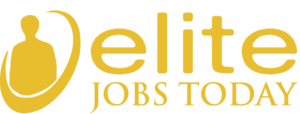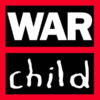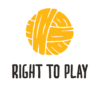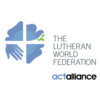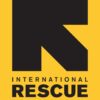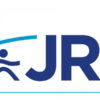The Organization
Plan International is an independent development and humanitarian organisation that advances children’s rights and equality for girls.
We believe in the power and potential of every child. But this is often suppressed by poverty, violence, exclusion and discrimination. And it’s girls who are most affected.
Working together with children, young people, our supporters and partners, we strive for a just world, tackling the root causes of the challenges facing girls and all vulnerable children.
We support children’s rights from birth until they reach adulthood. And we enable children to prepare for – and respond to – crises and adversity. We drive changes in practice and policy at local, national and global levels using our reach, experience and knowledge.
We have been building powerful partnerships for children for over 80 years, and are now active in more than 70 countries.
ROLE PROFILE
| Title | Head of Programme Strategy | ||
| Functional Area | Programmes | ||
| Reports to | Country Director – Plan International Uganda | ||
| Location | Country Office | ||
| Effective Date | 01 August 2022 | Grade | F |
ROLE PURPOSE
Working together with children, young people, our supporters and partners in more than 70 countries across Africa, Asia and the Americas, Plan’s International’s purpose is to strive for a just world that advances children’s rights and equality of girls. As a leader in the global movement for girls’ rights, a refreshed five year global strategy – “ Girls Standing Strong ” (2023-27) sets our ambition to together, take action girls learn, lead, decide and thrive. Focused programming and evidenced based influencing, plus value based and mission driven leadership are two (2) of the four (4) enablers to make this happen. We support children’s rights from birth until they reach adulthood. And we enable children to prepare for – and respond to – crises and adversity. We drive changes in practice and policy at local, national and global levels using our reach, experience and knowledge.Plan International is an independent development and humanitarian organization that advances children’s rights and equality for girls. We believe in the power and potential of every child. But this is often suppressed by poverty, violence, exclusion and discrimination. And its girls who are most affected.
Plan International aims to reach as many children as possible, particularly those who are excluded or marginalized; with high quality programmes that deliver long lasting benefits by increasing its income, working in partnership with others and operating effectively.
Plan International Uganda’s (PIU) 5-year Country Strategy (CS) has been approved for the period 2023 – 2027. Currently, the country programme reaches over 1 million children supported in four Programme Areas (PAs) and an urban programme in Kampala. It has a country annual budget turnover of nearly 15-16 million Euros, a growing team of over 300 full time staff. PIU manages a caseload of over 33,000 sponsored children and a large and diverse grants portfolio from bilateral and multilateral donors with a strong pipeline and potential of further funding opportunities.
Dimensions of the Role
The Head of Programme Strategy (HoPS) is primary accountable for the strategic programme planning, project and programme design, influence and advocacy work on national and local level. In addition, the HoPS is accountable for technical excellence and monitoring and evaluation in line with the Programme Quality Procedures, as well as organizational standards, frameworks, and procedures etc.
The Head of Programme Strategy is managed directly by the Country Director and will at times be required to take on the responsibilities of the Country Director position in his/her absence
The HoPS is a member of the Country Leadership Team (CLT) along with Country Director, Head of Programme Implementation, Head of Operations, Country Human Resource & Organizational Development Manager, Country Finance Manager. S/he is expected to contribute to Plan’s understanding and strategic direction in the country
Accountabilities
Strategic planning, reporting and support to quality programme delivery
- Regular review and refresh of the country strategy and strategic annexes to it such as urban strategy, advocacy strategy and new business development strategy.
- Ensures that all projects and programmes are designed so they are aligned with the country strategy, adhere to minimum standards outlined in the Areas of Global Distinctness Frameworks, follow the Management and Safeguarding Standards and are of sound design and budget.
- Leads PIU’s advocacy and influencing efforts by ensuring that the Influencing and Advocacy Strategy is reviewed, processes are designed and implemented to ensure evidenced based influencing.
- Organizational approaches such as mainstreaming, gender equality, resilience and partnership are incorporated across the programmes and projects
- Maintain active linkages with relevant Programme fora within Plan International, including AoGD Technical networks and other programme sharing platforms
- Ensures that Monitoring, Evaluation and Learning processes are in place, data are collected, reflected on and use for decision making. The results of M&E and research activities are integrated within the CPs, PIAs, partners etc. and projects are revised/adjusted accordingly.
- Ensures that PIU is a learning organization that shares good practices and lessons learned outside of PIU.
- Monitoring, evaluation and research plan supports the CS delivery with timely and accurate data on outcomes.
Member of the Country Leadership Team
- Actively participate in CLT meetings to provide strategic inputs/advice and contributing to decisions on policy and strategic direction.
- Support provided to other CLT members to achieve the country strategy outcomes.
- Provide regular updates to members regarding programme design, programme quality and technical excellence.
- Learning is shared within Plan International Uganda, supporting regular dialogue between programmes and other teams.
Working in Partnership:
- Identifies and develops new strategic partnerships with civil society, private sector, academia, intergovernmental and nongovernmental agencies, at all levels so as to work together to ensure equality and non-discrimination for children achieving their rights.
- Engages in key networks, movements and alliances relevant to the improvement of children’s (especially girls’) rights in Uganda and within Plan International movement
Advocacy and Influencing
- In collaboration with the programme team, ensure effective and evidenced based advocacy strategies are developed to ensure girls Learn, Lead, Decide and Thrive and specific advocacy asks are delivered.
- Hold to account and effectively influence duty bearers, key stakeholders and decision makers to promote and ensure rights of all children in Uganda through adequate laws, policy and practice.
- Ensure high quality publications, media messaging and all internal/external communications support Plan’s advocacy work.
- Ensure integration between communications and advocacy teams to effectively deliver programmes.
New Business Development and Resource Mobilization
- In coordination with the Business Development Manager, ensures relevant resource mobilization strategies and plans are in place.
- Ensure relevant programme staff provide technical inputs and coordinate with the business development unit to develop high quality concept notes, proposals, capacity statements etc.
- Informs and supports the CLT in resource allocation decisions particularly sponsorship funds allocations to PAs in line with CS and needs.
- Designs measures to ensure integration of sponsorship projects with grants projects for learning, effectiveness and maximization of impact to communities.
- Builds relationships with national offices and donors for sharing and learning so as to highlight impactful projects for scale up and expansion.
Compliance and Management of Risks:
- Safeguarding of Children and Young People – ensures the compliance and coherence of Plan International’s Safeguarding Policy at all times.
- Management and Safeguarding Standards – ensures that all standards are applied in his/her functional areas as applicable.
- Policies and procedures: coordinates with relevant heads of department/section so that systems and processes are in place to comply with global policies, standards and procedures and legal requirements, as applicable to his/her function.
Team Development and People Management:
- Ensures that all programme strategy and quality teams are operating as high-performance teams and have clear accountability lines.
- All programme staff understand, adopt and live the Values Based Leadership and Behaviours Framework in their daily work and life.
- Team building and maintenance: establish, agree, communicate and monitor standard of performance and behaviours of the team through IAPs, and key performance indicators (KPI’s) that are agreed annually, and monitored and updated quarterly.
- Ensures that the strategy and quality team has necessary skills, training and development to be able to effectively deliver on their roles, as well as provide the needed coaching and mentoring for career advancement.
Child Protection and Gender Equality & Inclusion
Ensures that Plan International’s global policies for Safeguarding Children and Young People and Gender Equality and Inclusion are fully embedded in accordance with the principles and requirements of the policy including relevant Implementation Standards and Guidelines as applicable to their area of responsibility. This includes, but is not limited to, ensuring staff and associates are aware of and understand their responsibilities under these policies and Plan International’s Code of Conduct (CoC), their relevance to their area of work, and that concerns are reported and managed in accordance with the appropriate procedures.
Key relationships
Supervisory role for: Technical Advisers (up to 5); MER Manager, Gender Specialist, Influencing and Advocacy Specialist, Business Development Manager, Communications Manager and Regional SRHR Technical Adviser
Internal
- Country Leadership/Management Team members.
- Other Programme leads in the region
External
- National and local authorities especially relevant ministers in the country e.g. Gender, Education, Health, Planning etc.
- Partners organizations
- Other INGO deputies and functional managers and forums organizations in country;
- UN Agencies and foreign missions
Leadership and Business Management Competencies
Leadership Competencies
- Set and communicate ambitious but realistic work goals and priorities, explaining how these contribute to Plan International’s purpose.
- Set high standards for self and others’ behavior, inside and outside work. Championing our values and commitment to rights, gender equality and safeguarding. Supporting the health, well-being and both physical and psychological safety of our staff, including their safety to speak out.
- Hold self and others to account for what we have agreed, dealing with poor performance quickly, firmly and constructively.
- Create a positive team spirit, helping people work well together, to reflect and continuously improve the efficiency and quality of what we do.
- Collaborate with team members, colleagues and partners in finding creative solutions to problems by sharing information, experience and ideas and actively seeking their input.
- Motivate and developing others by taking an interest, giving constructive feedback and praise, ensuring they are properly trained and helping them utilize their potential.
- Accept change and support others in adjusting to it, helping them understand.
Business Management Competencies
- Understand relevant sectorial context including how the sector operates in terms of funding and governance and awareness of Plan’s purpose, values, and global strategy
- Manage legal and reputational risk including risk assessment, communication, risk management and reporting in full compliance with risk-related standards, including in areas such as Child and Youth Safeguarding and Protection, Gender equality and inclusion, Counter Fraud, Safety and Security
- Manage activities and resources including skills in strategic thinking, planning and organising, financial planning and monitoring, negotiation and programme and project management
- Manage people and information including skills in assessment and coaching, evidence-based management, communication skills, both speaking and writing, and digital working, including personal digital skills.
Required knowledge, skills and behaviours
KNOWLEDGE
- Sound understanding of integrated development and critical analysis of root causes of child poverty.
- Demonstrable knowledge on key issues in development regarding Global Goals, UNCRC and CEDAW particularly around child rights.
- Excellent knowledge of strategic planning process.
- Knowledge of effective participatory MER systems and processes.
- Knowledge of the host country, the geopolitical factors affecting child-poverty in the country as well as the political, social and economic opportunities for development are an advantage.
SKILLs
- A master’s degree, preferably in development from a university of repute
- 10-15 years of experience (including international) in managing development programmes and preference with disaster response with large and complex budget
- Exceptional conceptual and strategic thinking skills
- Ability to train, mobilize, and manage both international and national staff
- Flexibility and ability to multi-task under pressure;
- Ability to work well in unstable and frequently changing
- Ability to communicate and negotiation at different levels and effective interpersonal skills, including the ability to build relationships with colleagues with diverse experiences
- Excellent written and oral communication skills, including presentation and public speaking
- Strong analytical and problem solving skills
- Leadership analysis/coaching and mentoring skills
Leadership Behaviours
Striving for high performance:
- Achieves clarity and accountability among whole team of their individual and collective objectives;
- Holds self and others to account to deliver on agreed goals and standards of behaviour.
- Organizes work clearly and effectively within the team;
- Deals with poor performers by either improving their contribution or managing their exit, if appropriate.
Strategic thinking and innovation:
- Creates strong strategic direction for own part of organisation in wider Plan context;
- Flexible approach to managing and prioritizing high workload and multiple tasks in a faced paced environment with tight deadlines.
- Major contributor to direction in the management team of which they are a member;
- Flexible in responding to new demands presented in emergency situations.
Decision making and risk management:
- Can address complex problems in a balanced way;
- Good judgment in decision-making, making best use of available information and looking at risks and mitigation measures.
- Willing to make difficult or unpopular decisions and stand by them.
Influence and communication:
- Uses the potential of varied cultures to reach solutions;
- Excellent listener who understands and shows sensitivity to the views of others;
- Forms good relationships quickly with wide range of people, including those in positions of power and who have different views/ interests;
- Represents Plan effectively with senior people in external stakeholder organisations;
- Understands external and internal politics and able to navigate these;
- Communicates with clarity and passion both 1-1 and with large groups;
- Effective negotiator in complex situations;
- Assertive without being aggressive.
Building effective teams and partnerships:
- Creates a highly motivated team with a unified purpose;
- Modifies own view to get best outcome for organisation;
- Contributes effectively to work of other functions/ units and to management team as a whole
- Able to build partnerships and improve relationships;
- Resolves conflict effectively in own team or across boundaries.
- Continuously uses both 1-1 and team situations to develop others;
- Organizes work to give others development opportunities;
- Deals effectively with mistakes and re-motivates those involved.
Self-awareness and resilience:
- Aware of own strengths, weaknesses and pro-active in using feedback and self-development
- Aware of impact on others and uses impact to create positive climate at work
- Manages own workload effectively and manages stress without harm to self or others
- Positive about change and able to cope well with ambiguity and support others in doing so
Plan International’s Values in Practice
We are open and accountable
- Promotes a culture of openness and transparency, including with sponsors and donors.
- Holds self and others accountable to achieve the highest standards of integrity.
- Consistent and fair in the treatment of people.
- Open about mistakes and keen to learn from them.
- Accountable for ensuring we are a safe organisation for all children, girls & young people
We strive for lasting impact
- Articulates a clear purpose for staff and sets high expectations.
- Creates a climate of continuous improvement, open to challenge and new ideas.
- Focuses resources to drive change and maximise long-term impact, responsive to changed priorities or crises.
- Evidence-based and evaluates effectiveness.
We work well together
- Seeks constructive outcomes, listens to others, willing to compromise when appropriate.
- Builds constructive relationships across Plan International to support our shared goals.
- Develops trusting and ‘win-win’ relationships with funders, partners and communities.
- Engages and works well with others outside the organization to build a better world for girls and all children.
We are inclusive and empowering
- Seeks constructive outcomes, listens to others, willing to compromise when appropriate.
- Builds constructive relationships across Plan International to support our shared goals.
- Develops trusting and ‘win-win’ relationships with funders, partners and communities.
- Engages and works well with others outside the organization to build a better world for girls and all children.
- Based in the country office located in Kampala with extensive and regular local travel as well as some international travel,
- Ability to travel to remote areas on monthly basis is a must
Level of contact with children
Mid contact: Occasional interaction with children
As a child rights organisation, Plan International Uganda strives to ensure that children and young people are kept safe in all the areas we operate. The organisation further has a Safeguarding Children and Young People Policy that every staff is required to sign.
Additional Responsibilities
Safeguarding Children and Young People Policy (SCYP) responsibilities (mandatory for all staff)
- Adhere to the Safeguarding Children and Young People Policy, Code of Conduct and reporting any Safeguarding issues.
- Responsible for the implementation of the Safeguarding Children and Young People standards as they apply to area of responsibility plus the development of actions to address identified gaps and monitoring their effectiveness.
- Ensure that all Plan International partners, visitors and associates in his/her area of responsibility are provided with, are made aware off and have signed and returned a copy of the Safeguarding Children and Young People Policy. Inform the partners, visitors and associates that they must comply with the policy in all contacts and communications with children during their visit.
Location: Kampala
Type of Role: 1 year Fixed Term Renewable
Reports to: Country Director
Grade: F
Closing Date: 18th April 2022
Candidates who have been vaccinated for COVID 19 have a higher chance of being considered for the position
Click Here to Apply
More Information
- Salary Offer 0-ush50000000 USD 0-ush50000000 Month
- Address Kampala, Kampala, Uganda
